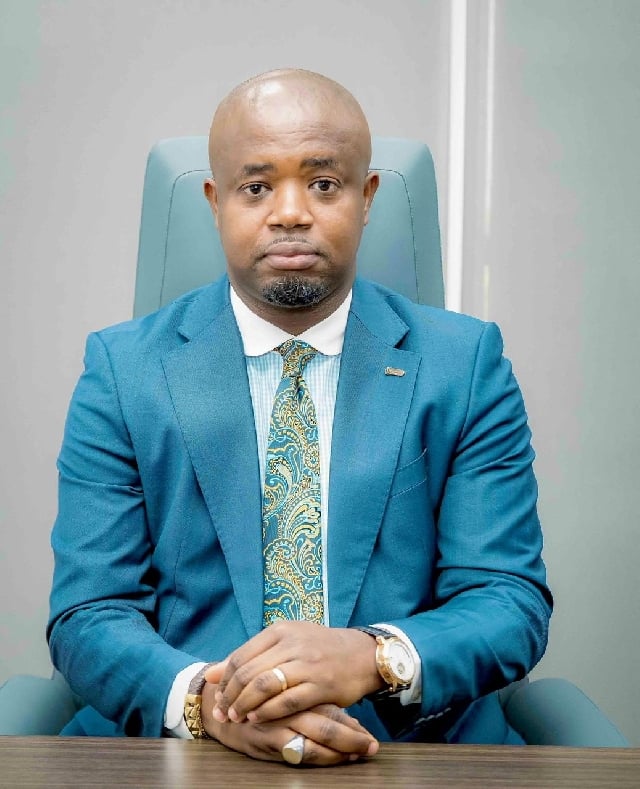The unfolding legal saga surrounding Kwabena Adu Boahene, the former head of Ghana’s Signals Bureau, has taken a turn towards controversy with the unauthorized leak of a confidential memo. This memo, penned by Mr. Boahene and addressed to the National Security Coordinator, purportedly details justifications for expenditure decisions made during his tenure. The leak has sparked serious concerns about the integrity of the ongoing investigation and the protection of sensitive state information. Godwin Edudzi Tamakloe, Director of Legal Affairs for the National Democratic Congress (NDC) and CEO of the National Petroleum Authority, has publicly denounced the leak, characterizing it as a severe breach of confidentiality that threatens to undermine the fairness of the legal proceedings against Mr. Boahene and erode public trust in state institutions.
The leaked memo lies at the heart of the legal battle surrounding Mr. Boahene. Its contents, now subject to public scrutiny, offer potential insight into the financial decisions taken during his leadership of the Signals Bureau. Mr. Boahene’s legal counsel, Samuel Atta Akyea, maintains that the memo was submitted in good faith to the current National Security Coordinator as part of an effort to facilitate open communication and understanding with the Attorney-General and the Economic and Organised Crime Office (EOCO). The intention, according to Mr. Akyea, was to provide context for the expenditures in question and to demonstrate that Mr. Boahene’s actions were justified within the operational realities of his role. He contends that the prosecution’s case is built on a shaky foundation, accusing them of overlooking the complex operational context in which Mr. Boahene made his decisions.
The controversy surrounding the leaked memo is further complicated by a new development in the case against Mr. Boahene. EOCO has reportedly re-arrested him, this time in connection with alleged procurement irregularities related to a network system project for the Ghana Water Company Limited. This new arrest broadens the scope of the investigation beyond the initial charges and adds another layer of complexity to an already intricate legal battle. It also raises further questions about the timing and motivation behind the leak, particularly given its potential to influence public perception of Mr. Boahene and the ongoing investigations.
Mr. Tamakloe, in his public statements, has emphasized the critical need for transparency and strict adherence to due process in these proceedings. He argues that the unauthorized disclosure of confidential information, such as the leaked memo, poses a significant threat to Mr. Boahene’s right to a fair trial. The premature release of such information into the public domain could potentially prejudice the jury pool and create an environment in which it becomes difficult for Mr. Boahene to receive impartial justice. Moreover, Mr. Tamakloe contends that such leaks undermine the public’s confidence in the integrity and impartiality of state institutions, particularly those responsible for upholding the rule of law.
The unauthorized disclosure of the memo raises serious questions about the security protocols surrounding sensitive government communications. Mr. Tamakloe has called for a thorough investigation into the circumstances surrounding the leak to determine how such a confidential document made its way into the public sphere. Identifying the source of the leak is crucial not only for accountability in this specific case but also for preventing future breaches of security and maintaining public trust in the government’s ability to protect sensitive information. The investigation should aim to identify any potential weaknesses in the current system and implement necessary measures to prevent similar incidents from occurring.
The unfolding events in this case underscore the precarious balance between transparency and confidentiality in legal proceedings, especially those involving sensitive state matters. While the public has a right to be informed about matters of public interest, this right must be balanced against the need to protect the integrity of investigations and ensure the right to a fair trial for all individuals. The leak of the confidential memo has disrupted this delicate balance, raising serious concerns about the fairness of the proceedings against Mr. Boahene and the broader implications for public trust in Ghana’s legal and governmental institutions. The call for a full and transparent investigation into the source of the leak is a crucial step in addressing these concerns and restoring public confidence.














